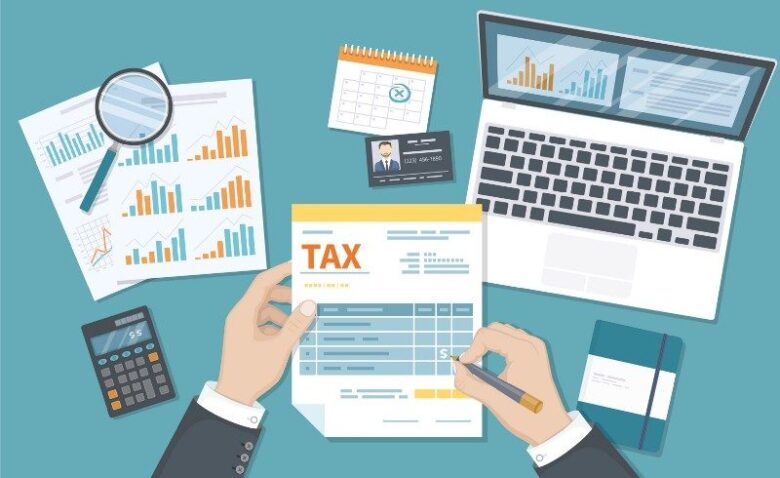Constructive receipt is a tax concept that relates to income. It states that when you have the legal right to income, even though it’s not in your possession, you still have to report it for tax purposes.
The IRS says constructive receipt occurs when you have control over funds or property before they actually become available for use or disposal by you.
Let’s say, for example, that a friend gives you $5,000 but asks that you wait until next year before using the money. That means he has given it to you and doesn’t want the change back (because then he’d be giving his friend cash). So, if he goes out and buys gifts with this money before Christmas but doesn’t give them all away yet—even though they’re wrapped up under trees—he could still be considered to have constructive possession of those funds because he has control over them right now but plans on using them later.
What is a Constructive Receipt?

source:walshassociates.co.nz
Constructive receipt is a concept that can make the tax treatment of income more complicated. It’s important to understand how the tax code works. Keep track of your generating invoices and carefully review them to make sure you don’t end up paying more in taxes than you should.
Here’s an example: You work for an employer, and they pay you a bonus at the end of each year. The bonus payment is considered income and must be reported on your W-2, but unless it’s actually received or credited to your account, it’s not taxable until then. So if your employer makes an error in their accounting and credits your bonus two months before the year ends, that could result in you having to pay taxes on those two months when they originally were not due yet (since they hadn’t actually been received).
This happens more frequently than most people realize because companies often make mistakes when calculating bonuses or other types of incentives based on performance metrics such as sales numbers or revenue growth targets achieved. Receipts maker is used by companies to eliminate errors. It is intended to make the process simpler and enable businesses to properly reward employees based on performance.
How Does Constructive Receipt Work?

source:artistsnetwork.com
You may have constructive receipt if you receive money or property even if you do not actually receive it. How do you determine if you have control of the property? There are two tests: the ordinary course of business test and the substance over form test.
If an asset is in your possession, in your home or non-home office, that would be considered being under your control. If an asset lies outside these locations, it can still be considered in your possession but not under your control; for example, money held by a shopkeeper during business hours could be considered under his or her control but not necessarily in his or her possession.
When a transfer occurs without any action on the part of either party (such as when an employee accepts funds from their employer), then there will generally be no tax liability on those funds unless there are other factors making them subject to tax (such as having been paid out later than usual). If however there is some action required on behalf of one party before they become entitled to receive their payment then this may cause taxable income upon receipt
Conclusion

source:forbes.com
Constructive receipt is a concept that can be a little confusing at first. The basic idea is that the government wants to make sure people pay their taxes by making them wait until they receive a payment before they have to pay taxes on it.
Constructive receipt is a principle in tax law that states that income is considered received by an individual or business, even if it is not physically in their possession. This means that if income is made available to an individual or business, it is considered received for tax purposes, regardless of whether or not it is actually collected. Understanding this principle is crucial as it can greatly impact the timing of when income is taxed.
For example, if an employee is offered a year-end bonus, but chooses to defer receiving it until the following year, the bonus will still be considered income for the current year for tax purposes, according to the constructive receipt rule. The employee will then be required to pay taxes on the bonus in the current year, despite not having physically received it yet. The constructive receipt principle applies to all types of income, including wages, salaries, bonuses, commissions, and rents. It also applies to non-cash income, such as stock options or property.
The IRS has established guidelines to determine when income is considered constructively received. These guidelines include whether or not the income is credited to an account, set aside for the individual or business, or made available to them without any restrictions. If any of these conditions are met, the income is considered constructively received.
It is important to note that the constructive receipt principle does not apply in all situations. For instance, if an individual or business is unable to control the receipt of income, it is not considered constructively received. Additionally, if an individual or business has a reasonable expectation of reimbursement for expenses, the income is not considered constructively received.
To avoid any confusion or issues with constructive receipt, it is crucial for individuals and businesses to keep track of their income and understand when it is considered received for tax purposes. This may involve working with a tax professional to ensure proper reporting and compliance with tax laws.
Constructive receipt is a principle in tax law that states that income is considered received by an individual or business, even if it is not physically in their possession. This means that if income is made available to an individual or business, it is considered received for tax purposes, regardless of whether or not it is actually collected. Understanding this principle is crucial as it can greatly impact the timing of when income is taxed.
